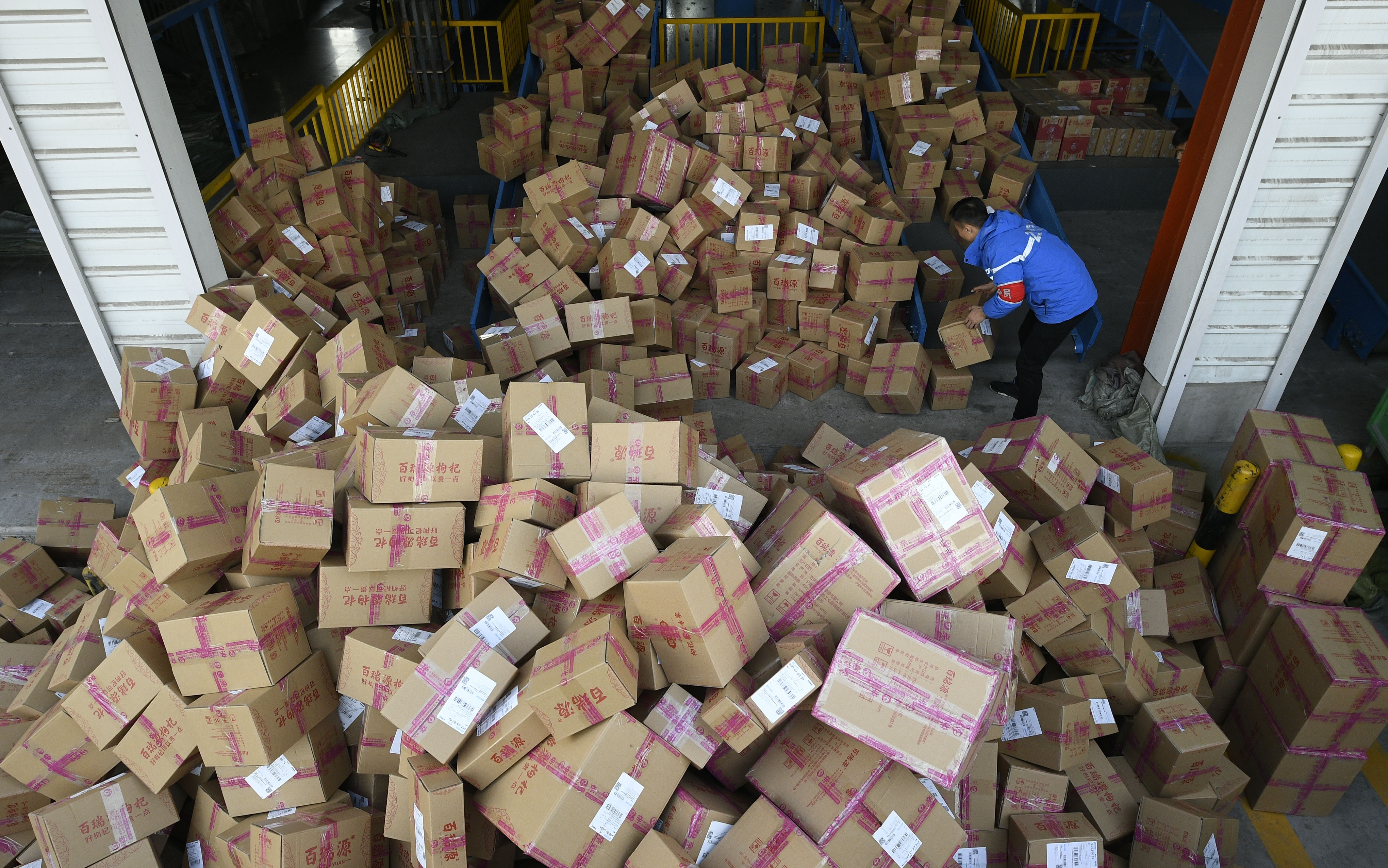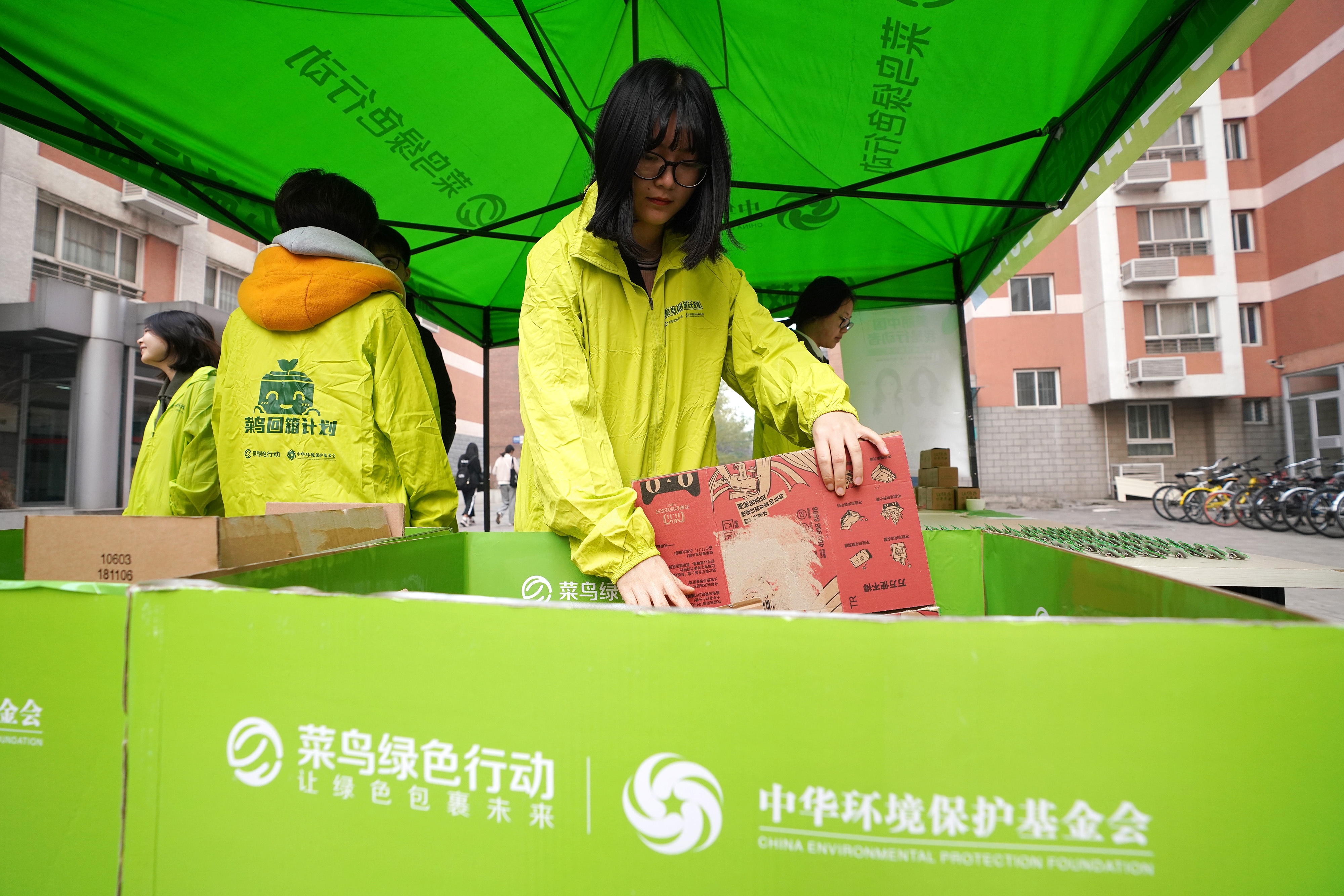Companies ‘going green’ to attract environmentally-conscious Chinese masses

In addition, Alibaba Cloud (Aliyun), a cloud computing subsidiary of the Alibaba Group, has announced that almost 200,000 kilowatt-hours of energy is expected to be saved at its data centers in this year’s singles’ day.

The Chinese e-commerce giant, Alibaba, is once again all set to establish yet another ground-breaking sales record in its annual mega-sale, aka singles’ day. This year, the company has moved one step further by announcing that singles’ day this year would be eco-friendly.
The “double 11” shopping festival, which was first launched in 2009, produced the total revenue of a mere $7.8 million in its first year. The sales figure attributed to this shopping festival has continued to rise since then. Last year, the festival earned a total revenue of $30.8 billion, a 27% increase from 2017. This year, the company expects to hit a more significant milestone, with almost half a billion shoppers participating in the festival. Nearly 200,000 companies, which include 22,000 international brands from 78 different countries, will be pitching more than 1 million new products to lure shopping enthusiasts in this year’s singles’ day.
By looking at the gigantic scale of this shopping festival, it becomes imperative to take into account its impact on the environment. This could be caused by the packing materials used in the shipping of the items as well as the company data centers’ higher consumption of energy for processing such massive numbers of online orders. Notably, Cainiao, which is Alibaba’s logistics network, delivered more than 1 billion packages during singles’ day last year.
This year, the company, has planned to establish 40,000 stations along with additional 35,000 stations by its express delivery partners for recycling used packing materials after the delivery of orders. These stations will act as collection and recycling centers for cardboard boxes and other packing materials returned by shoppers. Cainiao has also fixed November 20 as the date for recovering used packing materials from customers. Additionally, the company has planned to incentivize shoppers to return their packing materials to recycling stations by adding additional points in their Ant Forest app. This app is a green initiative by Alipay which allocates points to its users when they perform low-carbon activities in their daily lives such as cutting down the use of paper and plastic, paying their utility bills online, and using public transportation or bicycles instead of driving cars.
In addition, Alibaba Cloud (Aliyun), a cloud computing subsidiary of the Alibaba Group, has announced that almost 200,000 kilowatt-hours of energy is expected to be saved at its data centers in this year’s singles’ day. This energy conservation goal would be achieved by powering its data centers with renewable energy and deploying energy-saving technology such as liquid-cooled servers.

“Given its scale, minimizing the environmental impact is essential, and our technology will ensure it is a green 11.11 Global Shopping Festival,” said Fan Jiang, president of Taobao and Tmall.
This thought of “going green” on singles’ day also goes hand-in-hand with the increasing environmental consciousness of the Chinese masses. More Chinese are becoming appreciative of the eco-centric approach of organizations and are adopting various eco-friendly habits such as curtailing their consumption levels and purchasing second-hand products.
The latest survey from the world’s leading market research agency, Mintel, highlighted that almost 51% of China’s urban residents buy or rent second-hand products because of their concern for environmental issues. Nearly 63% of this environment-centric population are those with a higher level of education and who lead a sophisticated lifestyle. Despite their deeper pockets, most are willing to embrace re-commerce. A survey report published by the Sootoo Institute, an organization focused on surveying internet-based companies, highlighted that almost 50% of re-commerce websites’ users in China are below 24 years of age, while 34% are between 25-30 years.
It is also worth mentioning that Alibaba Group’s re-commerce platform, Xianyu, the largest Chinese platform for selling second-hand products, has been attracting an increasing number of its customers towards the group’s sustainability mini-app “Ant Forest” by partnering with Ant Financial. Users of Xianyu can redeem points on Ant Forest upon each purchase and each time they recycle. Last year, Ant Forest planted almost 230,000 trees on points redemption by users of Xianyu.
Except for Xianyu, some other foreign brands such as H&M have also come up with similar strategies to entice this environment-conscious population of the country. The Swedish apparel company has partnered with Xianyu to assign its shoppers with credit each time they return a bag of used clothing or textiles to the brand for recycling. This credit can then be used for purchasing products from the company’s flagship stores on Tmall.
By looking at this widespread phenomenon of “going green” among the Chinese masses and their growing inclination towards environment-centric companies, it is evident that more and more enterprises will follow the lead of Alibaba in adopting more sustainable ways to strengthen their brand loyalty among Chinese consumers. Also, it seems that several brands in China would soon launch their official stores in the country’s re-commerce websites to make recycling an integral part of the customer’s shopping experience.
Rachana Gupta is an active blogger, poet and freenlance content writer. She is also the author of the book “To The Horizon We Indeed Sail”.Opinion articles reflect the views of their authors only, not necessarily those of China Focus.
 Facebook
Facebook
 Twitter
Twitter
 Linkedin
Linkedin
 Google +
Google +










